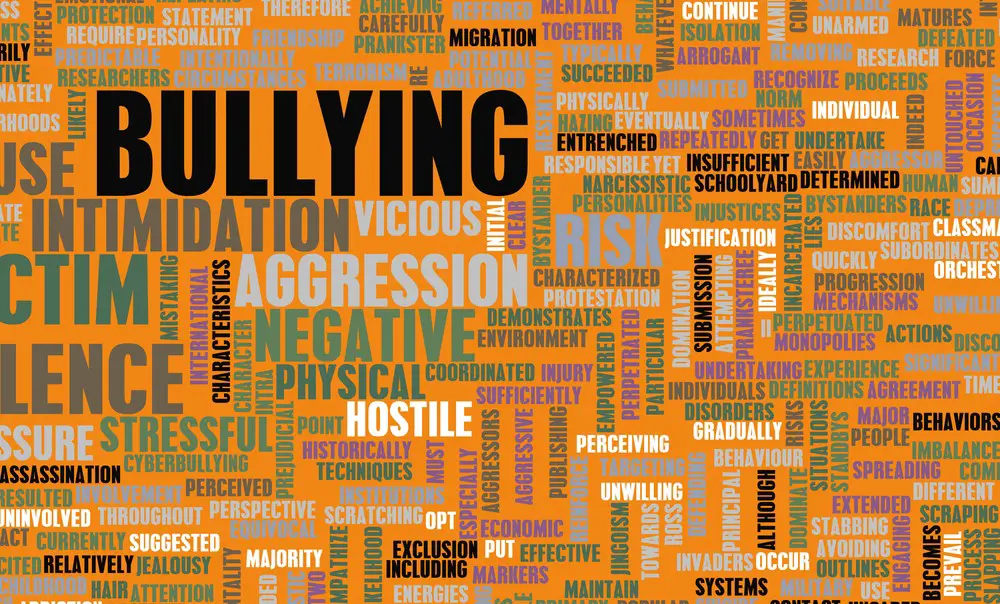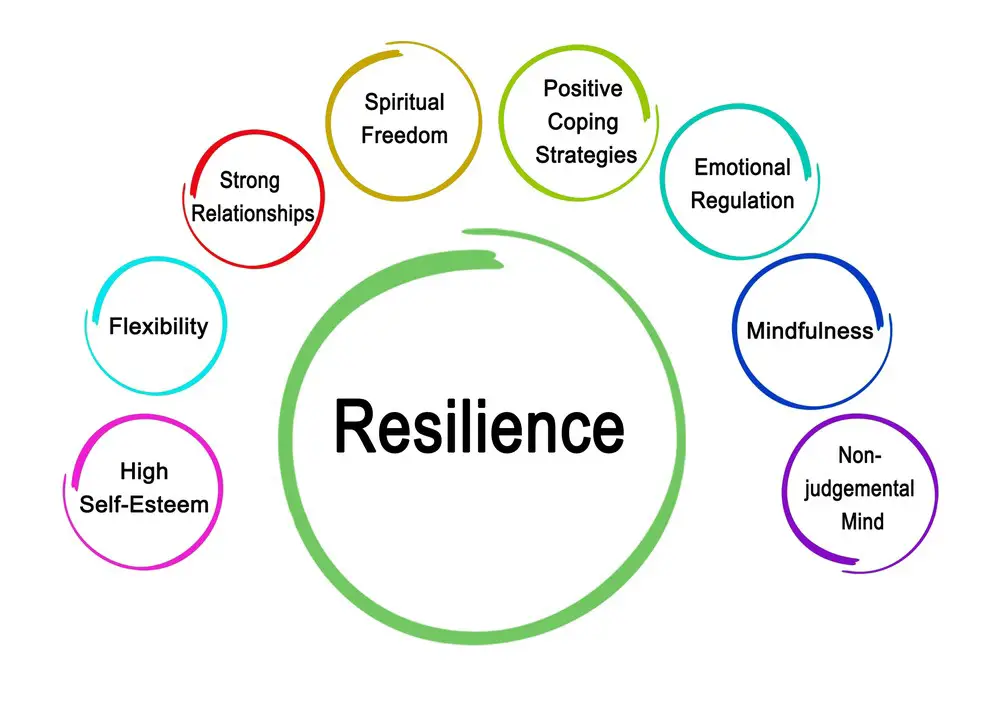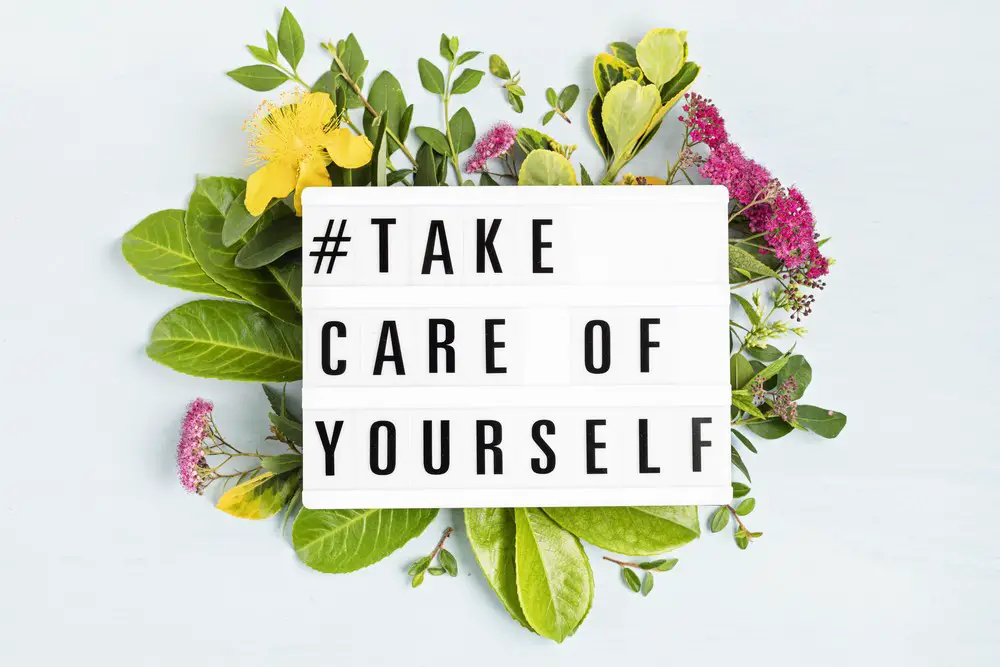As a BetterHelp affiliate, we receive compensation from BetterHelp if you purchase products or services through the links provided
Why is everyone so mean to me? This question often plagues individuals with low self-esteem and those who experience abusive behavior from others. This blog post will investigate the causes of meanness in human interaction and explore why some people act unkindly towards others.
We’ll begin by discussing what bullying is and its various forms. Next, we’ll examine the reasons behind such toxic actions – from insecurity to emotional baggage – and how these factors contribute to a person’s propensity for cruelty. Furthermore, we’ll discuss the impact of bullying on both parties involved: those targeted and the bullies themselves.
To help you navigate through these problematic social interactions, our post offers coping strategies that can be employed when faced with cruel words or actions. Additionally, we guide seeking professional help if needed and provide tips for practicing self-care in your daily life. Our objective is to provide you with the know-how and means so that you can progress confidently without allowing negative sentiments to control your experiences.
Exploring the reasons why individuals may behave in an unkind manner, it can help to detach oneself from such negativity while still feeling valued. So let’s dive in together and uncover why some might ask, “Why is everyone so mean to me?”
Table of Contents:
- What is Bullying?
- Why Do People Bully?
- The Impact of Bullying
- Coping Strategies
- Seeking Help
- Self-Care Tips
- Moving Forward
- Frequently Asked Questions Why is Everyone So Mean to Me
- Conclusion
What is Bullying?

Bullying is malicious and damaging conduct meant to hurt someone emotionally, physically or psychologically. It can manifest in various forms such as:
- Physical bullying involves using force or violence to intimidate or harm someone. Examples include hitting, kicking, pushing, and tripping.
- Verbal bullying: This type of bullying uses words to degrade, humiliate or threaten another person. Name-calling, insults, teasing and making offensive remarks are common examples.
- Social/relational bullying: Also known as emotional bullying, this form aims at damaging someone’s social relationships and reputation by spreading rumors or gossip about them. Exclusion from groups and public humiliation also fall under this category.
- Cyberbullying: With the rise of technology usage among young people today, cyberbullying has become increasingly prevalent. It occurs when individuals use digital platforms like social media sites, messaging apps, or online forums to harass others by anonymously sending threatening messages/images/videos.
The effects of these different types of bullying can be severe for both victims and perpetrators. Studies have shown that those who experience harassment are more likely to develop mental health issues such as depression and anxiety disorders later in life than their non-bullied peers.
Bullying can have serious, long-term consequences on an individual’s mental health and well-being; thus, it is essential to examine why people bully. To grasp the impetus for bullying, it is essential to examine why individuals opt to bully.
Why Do People Bully?

Grasping the motives driving bullying can assist us in more effectively confronting this problem and backing those who experience it. There are several reasons why people may resort to bullying others, including:
- Seeking power or control: Some individuals bully because they crave a sense of authority over others. By exerting dominance through aggressive behavior, they feel empowered and in control.
- Lack of empathy: Bullies cannot often empathize with their victims’ feelings, making it easier to inflict pain without remorse. This absence of empathy could be due to factors such as upbringing or certain personality disorders like narcissism.
- Mimicking behavior: In some cases, bullies have been exposed to similar behavior at home or within their social circles – leading them to imitate what they’ve experienced (source).
- Insecurity and low self-esteem: Those who struggle with their insecurities might attempt to bring others down to make themselves feel better about their perceived shortcomings.
- Social pressure: Sometimes, individuals engage in bullying simply because they won’t fit into a group that encourages such actions. They fear being ostracized if they do not conform to these expectations. Recognizing that these motivations do not excuse or justify bullying behavior is essential. However, understanding the root causes can help us develop effective strategies for addressing and preventing this harmful conduct.
People bully for many reasons, such as a lack of empathy or the need to feel powerful. It is essential to comprehend the repercussions of bullying to address it suitably and guard those exposed. After considering the causes of bullying, we now look into its impacts on individuals’ emotional, mental, and physical well-being.
The Impact of Bullying

Bullying can have a severe psychological and emotional impact, causing various negative emotions. Some common consequences include:
- Depression: Being subjected to cruel words or actions can lead to feelings of sadness, hopelessness, and despair.
- Anxiety: Constantly worrying about when the next abusive behavior will occur can cause chronic anxiety.
- Low self-esteem: Repeated unkind behavior from others may make people find it difficult to believe in their worth or abilities.
- Social isolation: Fear of being hurt by toxic people might result in avoiding social interactions altogether.
Beyond these immediate effects, there’s also the potential for long-term damage if the person doesn’t receive support or intervention. This could manifest as ongoing mental health issues like depression or anxiety disorders, difficulty forming healthy relationships due to trust issues stemming from past experiences with bullies, and an increased risk for substance abuse to cope with unresolved pain.
In some cases, those who’ve been bullied may begin exhibiting bad behavior themselves – either because they feel threatened by others (and thus lash out preemptively) or because they’re treating others poorly as a way to regain control over their lives after feeling powerless at the hands of their tormentors. This phenomenon is sometimes called “misery loves company,” where individuals who have experienced pain seek solace in causing similar suffering for others around them.
Bullied individuals may also carry emotional baggage from their experiences, resulting in negative feelings projected onto new relationships or situations. This might result in them unintentionally hurting someone’s feelings due to unresolved issues from the past.
People who have been bullied are not necessarily bad; instead, they often struggle with complicated emotions and attempt to cope in an environment where they sense insecure or undeserving. Understanding this context is crucial for fostering empathy and support for those who have experienced bullying.
The impact of bullying can be far-reaching and devastating, both mentally and physically. Hence, it is essential to comprehend how to manage these challenging circumstances to progress constructively. In the next section, we will explore some effective coping strategies that may help you manage your feelings about being bullied.
Coping Strategies

Dealing with bullies can be a challenging experience, but there are several healthy coping strategies that you can employ to protect yourself and maintain your mental well-being. The following tips will help you navigate these difficult situations effectively:
a) Set Boundaries
Establishing clear boundaries is crucial in any relationship, especially when dealing with bullies. Make it known what behaviors are unacceptable, and calmly communicate your feelings if someone crosses those lines. Learn more about setting healthy boundaries here.
b) Speak Up for Yourself
Bullies often prey on individuals they perceive as weak or passive; therefore, standing up for yourself is essential in deterring their behavior. Practice assertive communication techniques to confidently express your thoughts and feelings without being aggressive or confrontational. Discover effective ways to become more assertive here.
c) Surround Yourself with Supportive People
A strong support network of friends and family members can provide emotional encouragement during tough times while also serving as a protective barrier against bullying behavior. Reach out to people who genuinely care about you and share your experiences with them.
d) Document Incidents of Bullying
Maintaining a record of the bullying incidents may prove helpful should you need evidence later on – whether it’s reporting the issue at school/workplace or seeking legal action against the bully(s). Record particulars such as when, where, who was involved, and what transpired in the episode.
e) Practice Self-Compassion
Remember that the bully’s actions do not reflect your worth or character. Be gentle and forgiving with yourself during these challenging moments.
f) Develop Healthy Coping Mechanisms
Engage in activities that help you manage stress and maintain emotional balance, such as exercise, meditation, journaling, or pursuing hobbies you enjoy. These practices can provide an outlet for negative emotions and promote overall well-being.
By implementing these coping strategies when faced with bullying behavior, you’ll be better equipped to protect yourself emotionally and mentally while also taking steps toward creating a safer environment for everyone involved.
Coping techniques can be advantageous in addressing the feelings of being overwhelmed and unsupported. Still, it is essential to recognize that getting help from a specialist or support group may also provide invaluable aid. The following heading will explore ways to seek out additional resources for mental health support.
Seeking Help
If you are experiencing bullying affecting your mental health, seeking professional help is essential. When dealing with such a challenging situation, there is no shame in asking for support. Reaching out can be a vital initial step towards regaining authority and beginning the healing process.
Finding Support Services
Various resources assist those who have been bullied or are struggling with mental health issues due to mistreatment by others. Some options include:
- StopBullying.gov: A comprehensive website providing information on how to prevent and respond to bullying.
- National Alliance on Mental Illness (NAMI): Offers support groups, educational programs, and advocacy for individuals living with mental illness.
- National Suicide Prevention Lifeline: A helpline that provides free, confidential emotional support for people in suicidal crisis or emotional distress.
- School counselors: If you’re still attending school, consider talking to a counselor about what you’re going through. They may be able to provide guidance or connect you with additional resources within the school community.
- Mental health professionals: Therapists and psychologists can offer valuable insight into coping strategies specific to your situation while addressing any underlying mental health concerns resulting from the bullying experience.
Talking About Your Experience
Opening up about your experiences with bullying can be difficult, but it’s an essential step in the healing process. Reaching out to someone you trust, be it a relative, friend, or mental health expert, can offer an outside view and lessen the feeling of being alone.
Remember that seeking help is not a sign of weakness but demonstrates courage and self-awareness. By actively seeking assistance to address the psychological impacts of bullying, you are courageously striving for a healthier life.
Seeking help is essential in managing mental health issues and can provide invaluable support. Taking proactive measures to bolster one’s mental health can be a beneficial next step in ensuring overall well-being.
Self-Care Tips

Self-care is essential when dealing with bullying or any other challenging situation. By taking care of yourself, you can build resilience and maintain your mental well-being despite the negativity around you. Here are some helpful self-care tips to consider:
Create a Support Network
Build relationships with individuals who can lend a supportive ear and provide encouragement during challenging times. Reach out to those close to you, or join an online community that can relate to your situation and interests.
Engage in Activities You Enjoy
Focusing on hobbies and activities that bring joy into your life can help distract from negative experiences while also boosting your mood. Whether painting, dancing, reading, or playing sports – find something that makes you happy and dedicate time to it regularly.
Maintain a Healthy Lifestyle
- Eat well: A balanced diet with nutritious foods provides the energy needed for physical health and emotional stability.
- Sleep enough: Prioritize getting adequate sleep each night as this helps regulate mood swings and reduce stress levels – check these sleep hygiene tips.
- Exercise regularly: Physical activity has been proven to release endorphins which improve overall happiness – try incorporating at least 30 minutes of exercise daily.
Prioritize Mental Health Practices

Incorporate mindfulness practices, such as meditation, into your daily routine to reduce stress and improve mental health. Investigate diverse meditation methods to discover one that suits you best.
Set Boundaries
Establishing boundaries with those causing harm is crucial in protecting yourself from further emotional distress. Communicate clearly about unacceptable behaviors and be prepared to distance yourself if necessary.
Taking care of oneself is a must when confronted with challenging circumstances like bullying – it should not be viewed as an indulgence. By employing these techniques, one can be better prepared to face adversities while sustaining an emotionally healthy outlook.
Moving Forward
Focusing on personal growth and development is key to overcoming the effects of bullying, allowing for a brighter future. Embrace your potential and work towards a brighter tomorrow, regardless of the negative experiences that may have been caused by bullying. Here are some steps to help you move forward:
Acknowledge Your Strengths
Recognize that overcoming bullying is a testament to your resilience and inner strength. Be proud of yourself for standing up against such adversity. Make a compilation of your abilities, skills, and accomplishments to prove how resourceful you are.
Create New Goals
Set new personal or professional goals that excite and motivate you towards self-improvement. This will shift your focus from past negative experiences onto positive aspirations for the future.
Foster Positive Relationships
Surround yourself with supportive friends, family members, or even support groups. These individuals can encourage you during tough times while also celebrating your successes along the way.
Tips for Building Healthy Relationships:
- Cultivate open communication by expressing thoughts honestly without fear of judgment.
- Show appreciation through kind words or gestures like writing thank-you notes or offering compliments.
- Maintain trust by being reliable in keeping promises made to others.
- Be empathetic by listening actively when someone shares their feelings with you instead of trying to fix their problems immediately.
More time spent engaging in activities that bring joy into our lives helps us recover from any emotional turmoil caused by bullying. Whether painting, playing an instrument, or joining a sports team, find something that makes you feel good and dedicate time to pursue it.
Practice Self-Compassion
Remember to be kind to yourself during this healing process. Treat yourself with the same understanding and empathy you would offer a needy friend. Self-compassion exercises can help you develop this skill further.
Moving forward after experiencing bullying may not always be easy; however, focusing on your growth and development will empower you to overcome past challenges and create a brighter future for yourself.
10 Reasons Why Everyone is So Mean to You (and What to Do)
1. You Are Not Listening:
People can be mean to you if they feel you are not listening or paying attention to them. This could be because of your behavior, such as being distracted by something else or just not trying to hear what the other person is saying. To combat this, make sure that when someone is speaking to you, give them your full attention and actively listen without any distractions around.
2. You Have Low Self-Esteem:
If you have low self-esteem, people will likely take advantage of this and mistreat you. To fix this issue, focus on building up your self-confidence and believing in yourself more so that others won’t try to take advantage of your weaknesses anymore.
3. You Don’t Respect Others:
Everyone involved in a conversation or interaction with each other needs to show respect for one another – otherwise, it can lead to tension and bad feelings between all parties involved, which may manifest itself through meanness from some individuals towards others who don’t show respect for their opinions or beliefs Make sure that when talking with someone else, always remember the golden rule – treat others how you would want them to treat you.
4. They Feel Threatened By Your Presence:
Some people might feel threatened by your presence because they think their opinion isn’t valid enough compared to yours or because they’re jealous of what talents, skills, qualities, etc., you possess, making them uncomfortable about themselves. To address this situation head-on, express empathy towards those who feel threatened by recognizing their fears while also reassuring them that no matter what happens, there is still room for everyone’s voice in the conversation.
5. They Disagree With Your Views Or Opinions:
People often get defensive when faced with opinions different from theirs, especially if these views challenge their beliefs. Rather than getting into an argument, try having a civil discussion where both sides can learn from each other without feeling attacked. When engaging in debates, focus on understanding why the other person feels differently rather than trying to prove why one side is right over another – learning should be the primary goal here.
6. They Sense Weakness:
Unfortunately, some people tend to exploit weaknesses within those around us; whether it’s physical characteristics such as height, weight, age, etc., or emotional vulnerabilities such as lack of confidence in security, etc., it doesn’t matter – anyone deserves mistreatment due to these reasons. The best way to deal with these types of situations is by standing up against bullies instead of letting let walk all over you (figuratively)– do not allow anyone to take away your worth, regardless of how small and insignificant it may seem at first glance.
7 . They See You As A Rival:
Whether it is school work, sports competition, business opportunities, or whatever case, rivalry among peers exists everywhere, we look nowadays. Still, sometimes things are taken too far, leading individuals to become overly competitive and treat each poorly out of spitefulness and jealousy. However, this behavior should never be tolerated. Speak out against malicious behavior whenever possible to ensure a safe environment free of hostility exists even though rivals are present.
8 . Poor Communication Skills:
Sometimes misunderstandings arise due to a lack of proper communication skills e, misunderstanding the tone message sender intended to communicate receiver’s mind. Though difficult may times helpful to step back to reevaluate the situation and see what’s going on behind the scenes before jumping to conclusions and acting rashly. Doing helps avoid unnecessary conflicts and maintain healthy relationships between the two parties involved.
9 . Unresolved Issues From Past Relationships:
People naturally carry baggage and unresolved issues from past relationships, even after breakups occur. Things said and done during time together linger long afterward, thus affecting current interactions. These problems need to be addressed and handled correctly; otherwise, chances are that tensions rise, resulting in arguments and fights. Eventually leading to a hostile environment. Develop strong communication skills, talk openly and honestly about feelings, and create a positive atmosphere. Prevent negative emotions from spreading further, hurting more people process.
10 . Fear Of Rejection & Criticism:
Lastly, fear of rejection and criticism is common for people to become hostile. Individuals who feel vulnerable and exposed due to past experiences or trauma are likelier to lash out when they feel criticism is coming their way, believing that it’s easier for them to initiate the attack than be attacked. The best thing you can do in this situation is to empathize with the person and let them know that it’s ok for them to open up about their feelings – no matter what they may be.
Frequently Asked Questions
Why is everyone being so mean to me?
People may be meant for various reasons, such as stress, insecurity, or personal issues. It’s essential not to take their behavior personally and recognize that it often reflects their struggles rather than their worth. Consider seeking support from friends, family, or a mental health professional if the situation becomes overwhelming.
Why am I such a mean person to everyone?
If you consistently act mean towards others, consider reflecting on potential triggers for this behavior. Possible causes include unresolved anger, low self-esteem, or difficulty managing emotions. Acknowledging these factors can help you develop healthier coping mechanisms and improve your relationships with others.
What causes some people to be mean?
Various factors contribute to someone being mean: emotional distress; insecurities; past traumas; feeling threatened; power dynamics in social settings; and poor communication skills. Understanding these underlying reasons can help us empathize with those who exhibit unkind behaviors while setting boundaries for our well-being.
Why is everyone mean to each other?
In today’s fast-paced society, where online interactions are every day, anonymity, lack of empathy, and misunderstandings can make people more hostile towards one another. Additionally, stress, competition for resources, and attention-seeking behaviors might cause individuals to act aggressively against each other.
Conclusion
The truth is, no one deserves to be mistreated. If you feel like everyone is so mean to you, remember that it’s not your fault, and resources are available for help. If needed, seek support – speak to a trusted individual or mental health specialist to address the issue. Correct strategies can help you manage these challenging times and become even stronger.
If you feel overwhelmed by negativity, step back and explore Rest Equation. Our advice site is designed to provide valuable insight into coping with difficult situations and building healthier relationships.
Ultimately, the key to overcoming any obstacles lies within ourselves and our ability to face and confront the challenges that come our way with courage and confidence despite any worries or uncertainties surrounding us. With luck, we can find the strength to overcome our struggles and live happily ever after as the best version of ourselves daily. Good luck on your journey ahead!
- 3 Ways Wearing a Hat Can Help Lower Your Stress Levels - April 19, 2025
- Breaking the Silence: Why Men’s Mental Health Matters More Than Ever - April 15, 2025
- How to Transform a Home’s Patio Space into a Relaxing Space - March 23, 2025
This site contains affiliate links to products. We will receive a commission for purchases made through these links.




